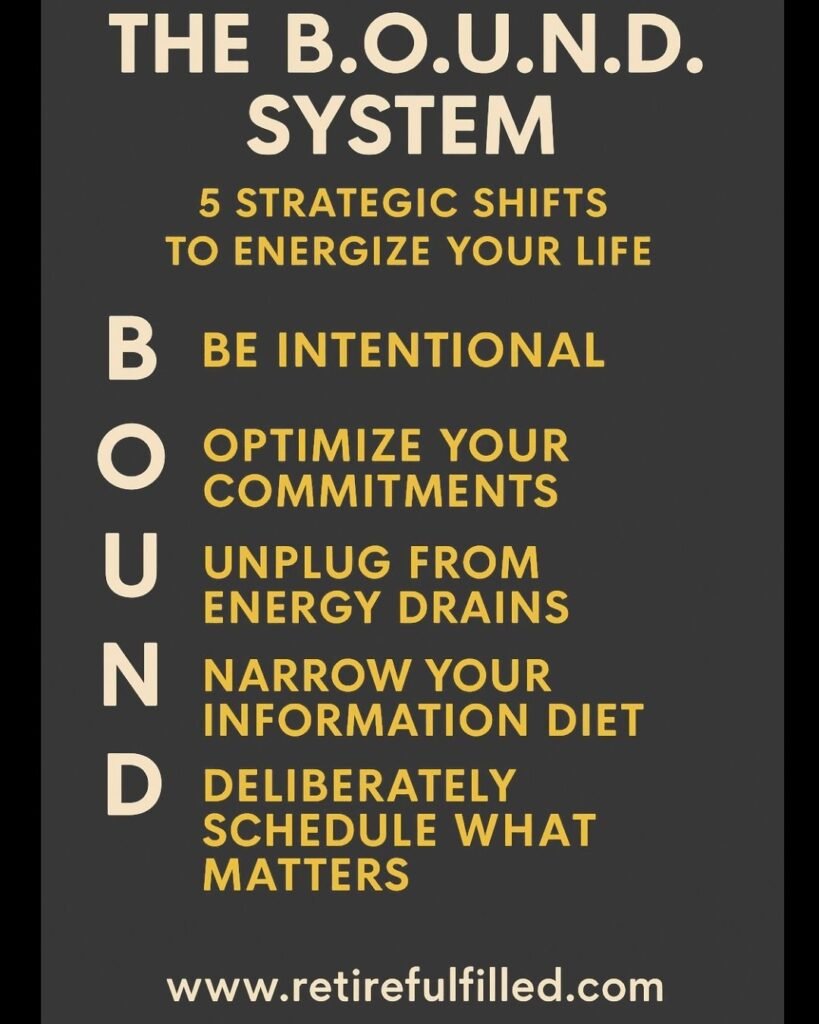
“I was the yes girl my whole life,” Margaret said. She was doing great, running the nearby neighbourhood association, volunteering with two different charities, visiting her grandchildren each and every weekend, and holding down a part-time job. But she was bitter, not because she disliked helping people, but because something was wanting. She had a revelation on her 60th birthday: “I’m not tired because I’m old. I’m so tired because I am not living my own life.” It was then that she understood that to be turning 60 and thriving would once involve finally putting herself back at the helm of her own life.
Six months later, Margaret had resigned from two committees, hired a babysitter to attend family events, and was painting again for the first time in decades. She burst with energy. Her relationships became even stronger. “I think what that ingredient is, is when I discovered that it’s not about doing more when I’m 60, it’s actually about doing what matters.”
The great news to celebrate is that 60 is not a slowing down point in your life; it’s an early speed up, if you’re on the right road. You’re not fading out; you’re just learning for the first time where to invest your energy. It’s not so much about trying to look younger than you are. It’s about getting sharper and more intentional than ever.
Why Burnout Happens Even When You’re Turning 60 and Thriving
You wake up in the morning drained, and the day seems very long. You sleep at night, wondering where your energy has disappeared to. (But here’s what no one tells you: you’re not tired because you’re aging. You’re worn out because you’ve been doing too much of the wrong things for too long.
When you were 40, you probably said yes to everyone (everyone’ surrogate). Extra work projects. Weekend favours for neighbours. Emotional support for everyone’s issues. Social events you dreaded. It wasn’t your generosity that was the problem; it was your inconsistent way of managing your energy.
The good news is that you have something the younger you didn’t: perspective. You’ve discovered that boundaries are not selfish, that they are necessary for the process of turning 60 and thriving.
The Boundary Revolution: Your Secret Weapon
Establishing boundaries at 60 is deciding where you want to put your attention. Each commitment must prove itself. Each “no” should be a way of feeling free.
The shift looks like this:
- Then: “I should go to that committee meeting, even though it sucks the life out of me.”
- Now: “I contribute where I will make an impact and skip the rest.”
- Then: “I can’t say no to babysitting, what kind of example will I be setting for my kids?”
- Now: “I’ll only babysit when I feel like it, not because I have to.”
Why Less Really Is More in Your 60s
Studies have shown that people who excel in their 60s or older are not doing more; they’re doing things differently, even if they’re not doing more of those different things. They’ve cleared out the clutter: the social obligations they’ve long resented, the guilt-driven commitments, and the background noise of “shoulds.”
This is your peak, not your taper. You no longer require the whole world to approve of what you choose to do. You have nothing to prove and only yourself to protect. You will rediscover energy reserves you never knew you had once you clear the noise.
Your Energy Isn’t Wasted; You’ve Just Been Chipping It Away
Most people don’t realize that depletion is not only about age, but also about scattered focus. You’ve been running in ten different directions for decades. No wonder you’re exhausted.
The good news is that you don’t need to do more. You need to do less, but do it better.
The equation for energy is different if you:
- Guard your mornings for your priorities
- Say “no” more often (and really mean it)
- Take fewer unproductive calls and meetings
- Let go of the “shoulds” that no longer work for you
Robert, 65, used to spend two hours every morning reading news from various sources and replying to all emails. Now, he spends 15 minutes reading a quality news source and checks his email twice a day. He has reclaimed his hours, is learning Italian, and has never felt more mentally alert.
You owe no one the younger version of yourself. The one you owe yourself.” The focused, self-assured version that finally knows what counts.
The B.O.U.N.D. System: 5 Keys to Energize Your Life
Here’s a proven framework:

B – Be Intentional And Own Your Hours In The Morning
Don’t start the day reacting. Create your own 30-minute morning practice, tailored especially for you. Whether that’s quietly drinking coffee, going for a walk, or journalling,
O – Optimise Your Commitments (Audit Your Yes’s)
Every “yes,” even as it enriches your life, costs you something: time, energy, peace of mind. Ask before saying yes to anything, “Is this a full yes for me?” If it’s not an “authentic yes,” then it’s a no. Write down all your existing obligations and score them from 1 to 10 based on how much energy you think you’ll give and get. Anything under a 7 should be considered for removal.
U– Unplug from Energy Drains (Find Your Leeches)
You know who they are and what they are. The always-negative friend. The never-ending group chat. The volunteer commitment you regret. Write down your three biggest energy drainers and set very clear boundaries for each, including time limits, topic restrictions, and/or a definitive ‘no’ when necessary.
N – Narrow Your information diet (simplify your inputs)
You don’t need five different news apps and endless podcasts. Choose one news source, one podcast, and one social media platform. Unsubscribe from everything else. David cut his email subscriptions from 47 to 5 must-haves.
D – Don’t Let the Important Things Slip Through the Cracks (Get on the Calendar)
Don’t just ‘find time” for your passions, make time. Prioritize your non-negotiables by scheduling them first: working out, hobbies, resting, social time with people you genuinely like. If it’s not on your calendar, it’s not a true priority.
The Real Truth About Turning 60 and Thriving
The mistake is to think that turning 60 and thriving is to somehow recapture your 20s; instead, it’s refusing the pressure to be exactly who you were at 40. That’s when you stop managing everyone else’s expectations and start managing your energy.
Focus less on chasing performance and more on finding alignment. You’re no longer chasing the spotlight; you choose where the light shines.
These people thriving in their 60s aren’t just doing more. They’ve just become ruthless editors of their calendars, their inputs, and emotional bandwidth. What remains is a life that finally fits.
Not because it’s smaller. But because it’s true.
Your 21-Day Boundary Challenge
Ready to test this theory? Here’s your experiment:
Week 1 (Days 1-7): Pick one energy-draining commitment. Cancel it, decline, or pass it on. Use that “extra” time to do something that is truly worthwhile – makes you happy, or at peace.
Week 2 (Days 8-14): Find your peak energy hours and fiercely guard them. Say no at least three times when you would usually say yes without giving it a thought.
Week 3 (Days 15 – 21): Implement one piece of the B.O.U.N.D. system on a daily basis. Each night monitor your energy level on a scale of 1-10.
What to monitor: Energy levels, quality of sleep, happiness within your relationship, time spent doing deeply fulfilling activities.
People are generally surprised by how much energy they have when they stop giving it to the wrong things.
The Bottom Line: Your Permission Slip to Succeed
Turning 60 and thriving is not about fighting age; it’s about fighting for your priorities. Empowered to live more intentionally than ever before. The issue isn’t whether you can flourish at 60. And so the question then becomes: what are you going to not do so that you can start growing?
Your 60s may be your most enlivened and fulfilling decade yet. What you need is courage to protect what’s worth keeping and a sense of what you need to let go.


